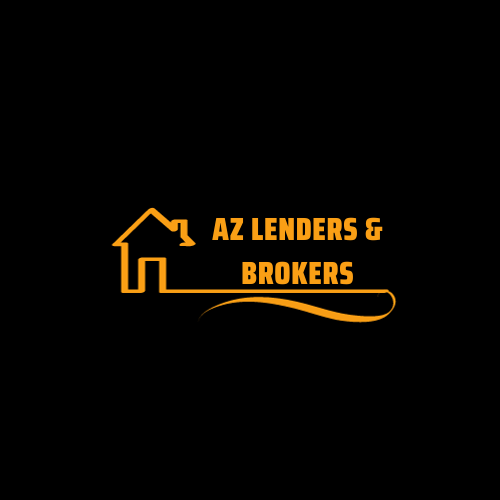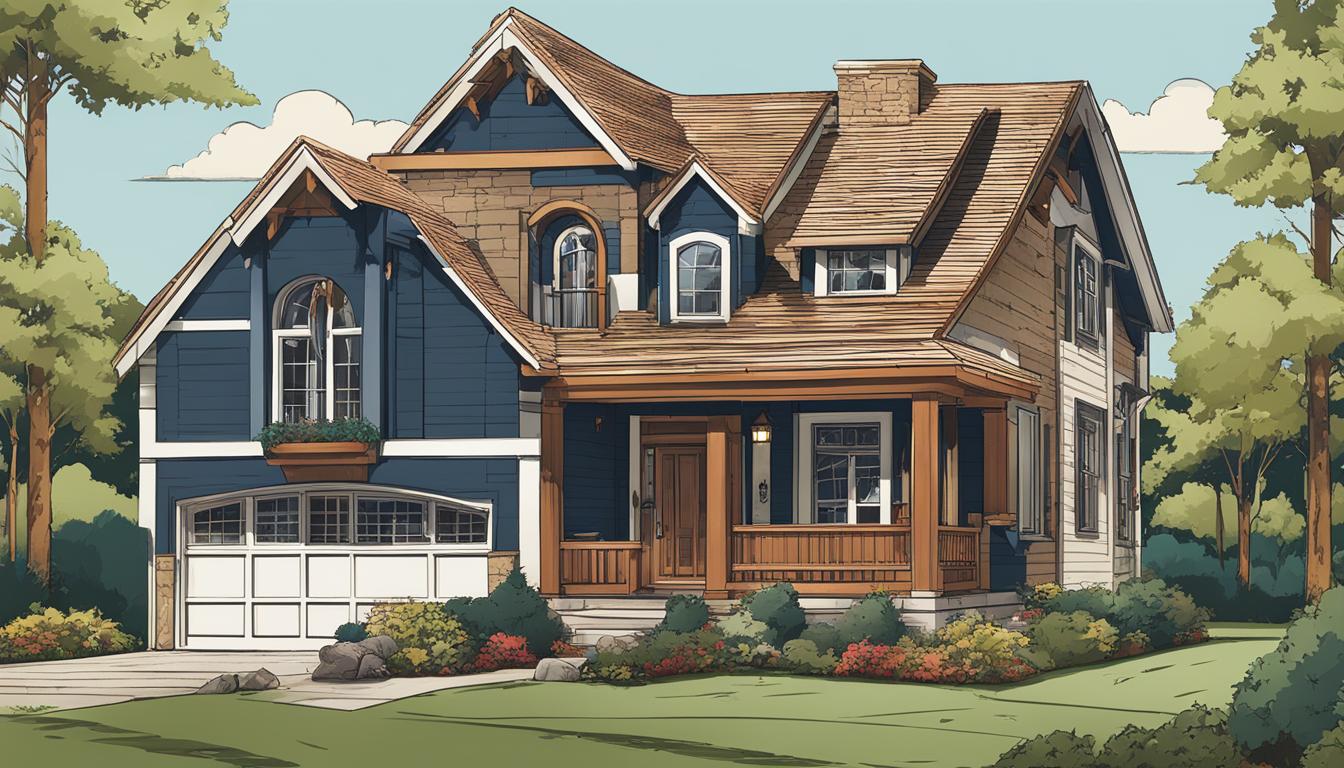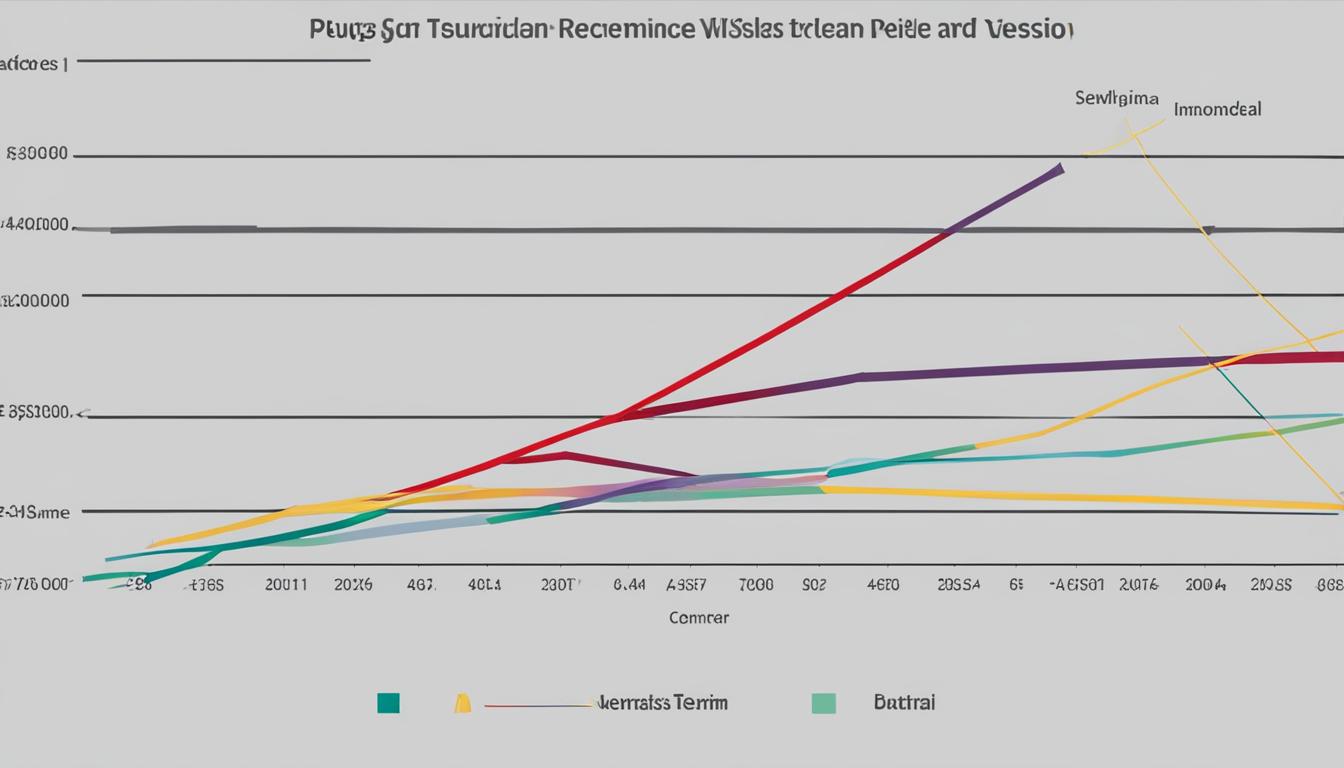Are you considering buying a home? It’s important to understand your financing options. Two popular choices are conventional loans and FHA loans. While both have their advantages, there are key differences between them that could impact your decision. In this article, we will explore the differences, benefits, and eligibility criteria for both types of loans. We’ll compare interest rates, down payment requirements, credit score requirements, and mortgage insurance. By understanding the pros and cons of conventional loans and FHA loans, you can make an informed choice that suits your needs and financial situation.
Key Takeaways:
- Conventional loans and FHA loans have different qualification requirements.
- Conventional loans are not insured by a federal agency, while FHA loans are insured by the Federal Housing Administration.
- Conventional loans generally require a higher credit score and larger down payment.
- FHA loans have more flexible standards, allowing for lower credit scores and smaller down payments.
- Interest rates for conventional loans are typically lower compared to FHA loans.
- Conventional loans require private mortgage insurance (PMI), while FHA loans have their own form of mortgage insurance called mortgage insurance premiums (MIP).
Eligibility Criteria for Conventional Loan and FHA
When it comes to eligibility criteria, there are some key differences between conventional loans and FHA loans. Let’s dive into the requirements for each type of loan.
Conventional Loan Eligibility Criteria
- Credit Score: Typically, borrowers need a credit score of at least 620 to qualify for a conventional loan. However, some lenders may allow a lower credit score if you are willing to make a larger down payment.
- Down Payment: The minimum down payment requirement for a conventional loan is usually 3% of the purchase price. However, if you put down less than 20%, you will be required to pay for private mortgage insurance (PMI).
FHA Loan Eligibility Criteria
- Credit Score: FHA loans have more flexible credit score requirements. The minimum credit score to qualify for an FHA loan is typically 580. However, borrowers with a credit score between 500 and 579 may still be eligible for an FHA loan, but they will need to make a higher down payment of 10%.
- Down Payment: The minimum down payment requirement for an FHA loan is 3.5% of the purchase price. This is a great option for first-time homebuyers or those with limited funds for a down payment.
It’s important to note that these are general guidelines, and individual lenders may have their own requirements. It’s always a good idea to consult with a mortgage lender to understand the specific eligibility criteria for the loan type you’re interested in.
| Conventional Loan | FHA Loan | |
|---|---|---|
| Credit Score Requirement | Minimum 620 | Minimum 580 (500-579 with 10% down payment) |
| Down Payment Requirement | Minimum 3% (may require higher with lower credit score) | Minimum 3.5% (10% for credit score 500-579) |
| Mortgage Insurance | Private Mortgage Insurance (PMI) if less than 20% down payment | Mortgage Insurance Premiums (MIP) for the entire loan term |
As you can see, the eligibility criteria for conventional loans and FHA loans differ in terms of credit score requirements and down payment amounts. Consider your financial situation and long-term goals when deciding which loan type is right for you.
Down Payment Requirements for Conventional Loan and FHA
When it comes to buying a home, one of the biggest considerations is the down payment. Both conventional loans and FHA loans have different requirements for the amount of money you need to put down upfront. Let’s take a closer look at the down payment requirements for each type of loan.
Conventional Loan Down Payment Requirements
For conventional loans, the minimum down payment typically starts at 3% of the purchase price. However, if you have a lower credit score, you may be required to put down a larger down payment. It’s important to note that if you put down less than 20%, you’ll also be required to pay for private mortgage insurance (PMI), which can add to your monthly mortgage costs. The amount of PMI you’ll pay will depend on the size of your down payment and your credit score.
FHA Loan Down Payment Requirements
FHA loans have more flexible down payment requirements compared to conventional loans. With an FHA loan, you’ll typically need a minimum down payment of 3.5% of the purchase price. This lower down payment requirement can make homeownership more accessible, especially for first-time buyers or those with limited funds. However, it’s important to note that FHA loans also require mortgage insurance premiums (MIP) that must be paid for the entire loan term.
| Conventional Loan | FHA Loan | |
|---|---|---|
| Minimum Down Payment | 3% | 3.5% |
| PMI/MIP | Required if down payment is less than 20% | Required for entire loan term |
As shown in the table above, conventional loans have slightly lower down payment requirements, but they come with the addition of PMI if you don’t put down at least 20%. FHA loans have a higher minimum down payment, but they may be more accessible for buyers with limited funds or lower credit scores. When deciding between the two loan types, it’s important to consider your financial situation and goals to determine which option is right for you.
Remember, the down payment is just one factor to consider when choosing a loan. You’ll also want to look at interest rates, credit score requirements, and eligibility criteria. Consulting with a mortgage lender can help you navigate the options and find the best loan for your specific needs.
Credit Score Requirements for Conventional Loan and FHA
When it comes to qualifying for a mortgage, your credit score plays a crucial role. Both conventional loans and FHA loans have specific credit score requirements that you need to meet to be eligible for financing. Let’s take a closer look at the credit score requirements for each loan type:
Credit Score Requirements for Conventional Loan:
Conventional loans generally require a minimum credit score of 620. Lenders consider a higher credit score as a sign of financial responsibility and are more likely to offer favorable loan terms to borrowers with a higher score. It’s important to note that meeting the minimum credit score requirement doesn’t guarantee loan approval, as lenders may also consider other factors such as your income, debt-to-income ratio, and employment history.
Credit Score Requirements for FHA Loan:
FHA loans have more lenient credit score requirements compared to conventional loans. The minimum credit score needed to qualify for an FHA loan is 580. However, borrowers with a credit score between 500 and 579 may still be eligible, but they will need to make a higher down payment of at least 10%.
| Loan Type | Minimum Credit Score |
|---|---|
| Conventional Loan | 620+ |
| FHA Loan | 580 (3.5% down payment) or 500-579 (10% down payment) |
It’s important to remember that credit scores are just one factor lenders consider when evaluating your loan application. Other factors such as your income, employment history, and debt-to-income ratio also play a significant role in deciding your eligibility for a loan.
Now that you understand the credit score requirements for conventional loans and FHA loans, you can take steps to improve your credit score if needed or explore the loan option that aligns with your financial goals and circumstances.
Comparison of Interest Rates for Conventional Loan and FHA
One crucial factor to consider when deciding between a conventional loan and an FHA loan is the interest rate. The interest rate on a mortgage determines the cost of borrowing and has a significant impact on your monthly payments and overall loan affordability.
Generally, conventional loans tend to have lower interest rates compared to FHA loans. This is because conventional loans are not insured by a federal agency like the FHA. Lenders typically view conventional loans as less risky due to their stricter qualification requirements, such as higher credit scores and larger down payments. As a result, they offer more competitive interest rates to borrowers who meet these criteria.
On the other hand, FHA loans have slightly higher interest rates due to their more lenient standards. These loans are backed by the Federal Housing Administration, which means lenders have added protection against potential defaults. While FHA loans may have slightly higher interest rates, they can still be an attractive option for borrowers with lower credit scores or limited funds for a down payment.
Table: Comparison of Interest Rates
| Conventional Loan | FHA Loan | |
|---|---|---|
| Interest Rate | Lower | Slightly higher |
| Qualification Requirements | Higher credit score, larger down payment | Lower credit score, smaller down payment |
| Mortgage Insurance | Private Mortgage Insurance (PMI) required for less than 20% down payment | Mortgage Insurance Premiums (MIP) required for the entire loan term |
It’s important to note that interest rates can vary based on individual circumstances, including credit score, down payment amount, and current market conditions. To make an informed decision, it’s recommended to compare rates from different lenders and consider the overall affordability of the loan.
Mortgage Insurance for Conventional Loan and FHA
Mortgage insurance plays a crucial role in both conventional loans and FHA loans. However, there are key differences in how mortgage insurance is structured for each type of loan.
Conventional Loan Mortgage Insurance
With conventional loans, mortgage insurance is required when the borrower puts down less than 20% of the home’s purchase price. This insurance is known as private mortgage insurance (PMI). It protects the lender in case the borrower defaults on the loan.
The cost of PMI varies depending on factors such as the down payment amount, credit score, and loan term. Generally, the higher the down payment and credit score, the lower the PMI premium. It’s important to note that PMI can be canceled once the borrower reaches 20% equity in the home, either through payments or appreciation in the property’s value.
FHA Loan Mortgage Insurance
FHA loans have their own type of mortgage insurance called mortgage insurance premiums (MIP). Unlike PMI, MIP is required for the entire loan term. It consists of an upfront premium payment at closing and annual premiums that are included in the monthly mortgage payments.
The amount of MIP depends on factors such as the loan amount, down payment, and term. The upfront premium is typically 1.75% of the loan amount, while the annual premiums range from 0.45% to 1.05%, depending on the loan-to-value ratio and loan term. It’s worth noting that FHA loans with a term of 15 years or less and a down payment of less than 10% do not require MIP after the loan-to-value ratio reaches 78%.

Understanding the differences in mortgage insurance for conventional loans and FHA loans is essential when choosing the right loan option for your needs. While conventional loans may require PMI, it offers the advantage of being removable once you build sufficient equity. FHA loans, on the other hand, have MIP for the entire loan term, but they provide more flexibility with lower credit score and down payment requirements.
Ultimately, the choice between conventional loans and FHA loans should be based on your financial situation and goals. Consulting with a mortgage lender can help you determine which loan type and mortgage insurance option is the best fit for you.
Pros and Cons of Conventional Loan and FHA
When considering a home loan, it’s important to weigh the pros and cons of both conventional loans and FHA loans. Each option has its own advantages and disadvantages, so let’s take a closer look.
Pros of Conventional Loans:
- Lower interest rates: Conventional loans typically offer lower interest rates compared to FHA loans, especially for borrowers with a high credit score.
- Flexible property eligibility: Conventional loans allow for a wider range of property types, including investment properties and second homes.
- No upfront mortgage insurance: Unlike FHA loans, conventional loans do not require an upfront mortgage insurance premium, which can save borrowers money at closing.
Cons of Conventional Loans:
- Stricter qualification requirements: Conventional loans have higher credit score and down payment requirements compared to FHA loans, making them more challenging to qualify for.
- Private mortgage insurance (PMI): If you put down less than 20% on a conventional loan, you’ll need to pay for PMI until you reach 20% equity in the home.
Pros of FHA Loans:
- Lower credit score requirements: FHA loans have more lenient credit score requirements, making them accessible to borrowers with lower credit scores.
- Lower down payment: With an FHA loan, you can qualify for a down payment as low as 3.5% for a credit score of 580 or higher, which is beneficial for first-time homebuyers or those with limited funds.
- Flexible debt-to-income ratio: FHA loans allow for a higher debt-to-income ratio, making it easier for borrowers with existing debt to qualify.
Cons of FHA Loans:
- Mandatory mortgage insurance: FHA loans require both an upfront mortgage insurance premium (MIP) and ongoing monthly mortgage insurance, regardless of your down payment or equity in the home.
- Higher interest rates: FHA loans generally have higher interest rates compared to conventional loans, which can result in higher monthly mortgage payments over the life of the loan.
- Property restrictions: FHA loans have specific property requirements, such as minimum property standards, which can limit the types of homes you can purchase.
Ultimately, the choice between a conventional loan and an FHA loan depends on your individual financial circumstances and goals. Consider your credit score, down payment amount, interest rates, and eligibility criteria when making a decision. Consulting with a mortgage lender can provide valuable guidance in selecting the loan type that best suits your specific needs.
Key Differences: Conventional Loan vs. FHA
When deciding between a conventional loan and an FHA loan, it’s important to understand the key differences between the two options. These differences include eligibility criteria, down payment requirements, credit score requirements, interest rates, and mortgage insurance. Let’s take a closer look at each of these factors to help you make an informed decision.
Eligibility Criteria
To qualify for a conventional loan, you typically need a credit score of at least 620. FHA loans, on the other hand, have more lenient standards, with a minimum credit score requirement of 580 for a 3.5% down payment. Borrowers with credit scores between 500 and 579 may still be eligible for an FHA loan, but with a higher down payment of 10%.
Down Payment Requirements
Conventional loans usually require a minimum down payment of 3% if you meet the credit score requirements. However, if your down payment is less than 20%, you’ll need to pay for private mortgage insurance (PMI). FHA loans, on the other hand, allow for a lower down payment of 3.5% for borrowers with a credit score of 580 or higher. Borrowers with credit scores between 500 and 579 must put down 10%.
Credit Score Requirements
Conventional loans generally require a minimum credit score of 620. A higher credit score can result in a lower interest rate and more favorable loan terms. FHA loans have more flexible credit score requirements, with a minimum score of 580 for a 3.5% down payment. Borrowers with credit scores between 500 and 579 can still qualify for an FHA loan, but with a higher down payment requirement.
Interest Rates and Mortgage Insurance
Interest rates for conventional loans are typically lower compared to FHA loans. However, it’s important to compare rates from different lenders to find the best option for you. Additionally, conventional loans require private mortgage insurance (PMI) if your down payment is less than 20%. FHA loans have their own form of mortgage insurance called mortgage insurance premiums (MIP), which is required for the entire loan term.

In summary, the key differences between conventional loans and FHA loans lie in the eligibility criteria, down payment requirements, credit score requirements, interest rates, and mortgage insurance. Conventional loans have stricter qualification standards and typically require a higher credit score and larger down payment. FHA loans, on the other hand, have more lenient criteria and allow for lower credit scores and smaller down payments, but come with mandatory mortgage insurance for the entire loan term. Consider these differences carefully when choosing the loan option that best suits your financial situation and goals.
How to Choose Between Conventional Loan and FHA
Choosing between a conventional loan and an FHA loan can seem like a daunting task, but it’s important to assess your individual financial circumstances and goals to make an informed decision. Here are some key factors to consider:
Credit Score:
Your credit score plays a crucial role in determining your eligibility for both conventional and FHA loans. If you have a higher credit score, a conventional loan may offer lower interest rates and more favorable loan terms. However, if your credit score is on the lower side, an FHA loan may be a more viable option as they have more lenient credit score requirements.
Down Payment:
Consider how much you can afford to put down as a down payment. Conventional loans typically require a higher down payment, ranging from 3% to 20%, depending on your credit score. On the other hand, FHA loans generally have a lower minimum down payment requirement of 3.5%, making them more accessible for borrowers with limited funds.
Interest Rates:
Interest rates can vary between conventional loans and FHA loans. Generally, conventional loans offer lower interest rates, but it’s essential to compare rates from different lenders to ensure you’re getting the best deal. Take into account the current market conditions and how they may impact interest rates over time.
Eligibility Criteria:
Review the eligibility criteria for both loan types to see which one aligns with your financial situation. Conventional loans have stricter standards, including higher credit score requirements and sometimes more extensive documentation. FHA loans offer more flexibility and may be suitable for first-time homebuyers or those with lower credit scores.
Ultimately, the decision between a conventional loan and an FHA loan depends on your specific needs and circumstances. Consulting with a mortgage lender can provide valuable insights and guidance based on your financial goals. By carefully considering factors such as credit score, down payment, interest rates, and eligibility criteria, you can make an informed choice that sets you on the path to homeownership.
Conclusion
Both conventional loans and FHA loans offer unique advantages and eligibility criteria. Conventional loans are ideal for borrowers with higher credit scores and larger down payments, while FHA loans provide flexibility for those with lower credit scores and smaller down payments.
When deciding between the two options, it is crucial to consider your financial circumstances and goals. Evaluate factors such as your credit score, down payment amount, interest rates, and eligibility criteria. Take the time to compare offers from different lenders and consult with a mortgage professional to make an informed decision that aligns with your specific needs.
In summary, whether you choose a conventional loan or an FHA loan, it’s important to understand the differences between them. Assess your personal situation, weigh the pros and cons, and select the loan type that best suits your financial goals and long-term plans. Remember, each loan option has its own set of advantages, so choose wisely and confidently navigate your path to homeownership.
FAQ
What is the difference between a conventional loan and an FHA loan?
Conventional loans are not insured by a federal agency, while FHA loans are insured by the Federal Housing Administration.
What are the eligibility criteria for a conventional loan and an FHA loan?
Conventional loans typically require a credit score of at least 620, while FHA loans have more flexible standards with a minimum credit score requirement of 580.
What are the down payment requirements for a conventional loan and an FHA loan?
Conventional loans require a down payment of at least 3%, while FHA loans allow for a lower down payment of 3.5% with a credit score of 580 or higher.
What are the credit score requirements for a conventional loan and an FHA loan?
Conventional loans generally require a minimum credit score of 620, while FHA loans have a minimum score requirement of 580 for a 3.5% down payment.
How do interest rates compare for conventional loans and FHA loans?
Generally, conventional loans have lower interest rates compared to FHA loans. However, it’s important to compare rates from different lenders to find the best option.
What is the mortgage insurance requirement for a conventional loan and an FHA loan?
Conventional loans require private mortgage insurance (PMI) for borrowers who put down less than 20%, while FHA loans have their own mortgage insurance premiums (MIP) for the entire loan term.
What are the pros and cons of a conventional loan and an FHA loan?
Conventional loans offer potentially lower interest rates but have stricter qualification requirements, while FHA loans have more flexible standards but come with mandatory mortgage insurance.
What are the key differences between a conventional loan and an FHA loan?
The key differences include eligibility criteria, down payment requirements, credit score requirements, interest rates, and mortgage insurance. Conventional loans have stricter standards and typically require a higher credit score and larger down payment.
How can I choose between a conventional loan and an FHA loan?
Choosing between the two depends on individual financial circumstances and goals. Factors to consider include credit score, down payment amount, interest rates, and eligibility criteria. Consulting with a mortgage lender can help determine the best option.





